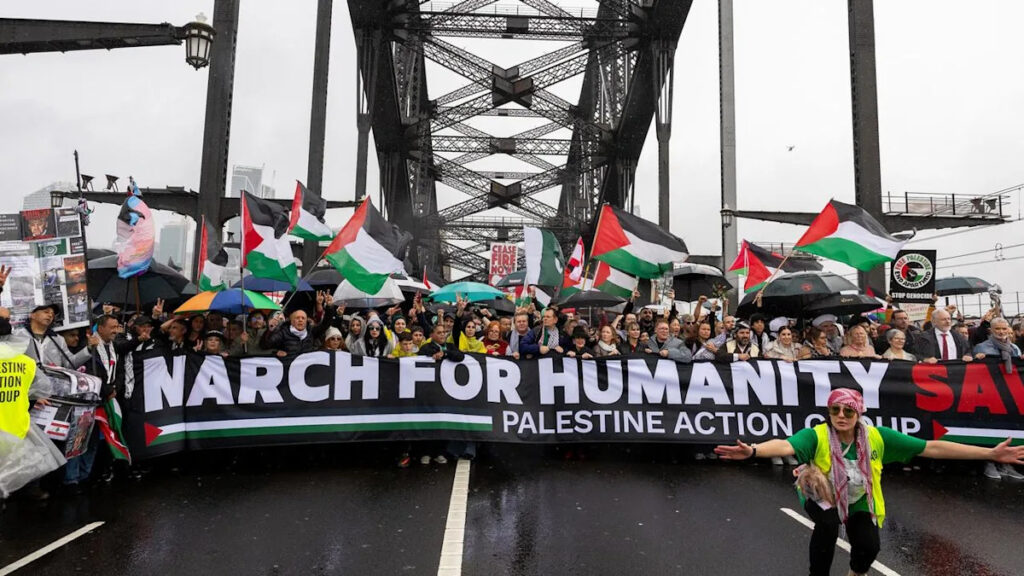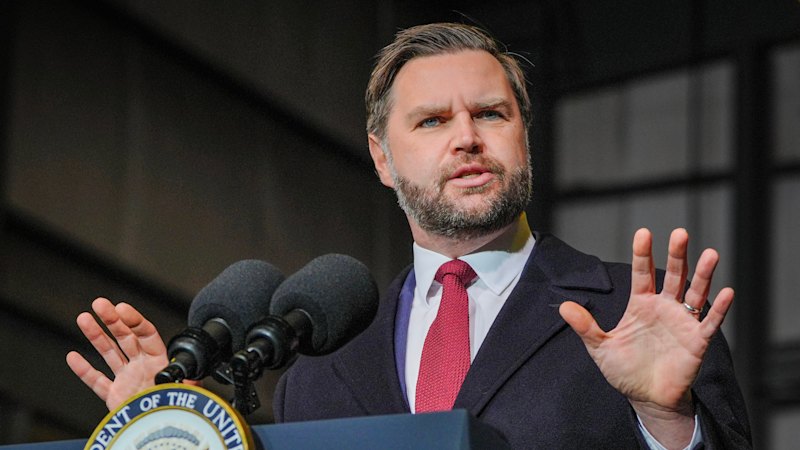
BREAKING NEWS: Australian Prime Minister Anthony Albanese ignites a political firestorm with his recent pledge to recognize Palestinian statehood by next month, prompting fierce backlash from opposition leaders. This urgent announcement, made on Monday, has led to accusations of “rewarding terrorists” while also receiving praise for supporting Palestinian rights amid escalating tensions in the region.
Opposition frontbencher Sussan Ley has sharply criticized Albanese for failing to consult with the Coalition before making such a significant foreign policy commitment. Ley claims he has bungled one of the most pressing challenges facing the Australian government and has vowed to reverse the recognition of Palestine if the Coalition regains power. “They’ve chosen not to take that path,” Ley stated during her condemnation of the unilateral decision.
With over 100,000 protesters marching across the Sydney Harbour Bridge against the ongoing war in Gaza, this issue is hitting home for many Australians, including those with familial ties to the region. Senior opposition MP Tim Wilson expressed that it would have been “sensible” for Albanese to reach out and form a bipartisan stance on the matter.
Wilson elaborated, “We’ve taken a long-term bipartisan position around a two-state solution based on a series of preconditions,” including ensuring Israel’s security and the return of Israeli hostages. He emphasized that the Albanese government has “thrown that into turmoil” with its commitment to recognize Palestinian statehood without addressing these preconditions.
During his announcement, Albanese outlined four commitments secured from Mahmoud Abbas, the President of the Palestinian Authority (PA). These included stipulations that Hamas would have “no role” in a future Palestinian state and that the PA would recognize “Israel’s right to exist in peace and security.” However, experts and critics have raised concerns about the PA’s credibility, given its history of corruption and ineffective governance, with the last presidential election occurring in 2005.
Albanese stated that Abbas also committed to scrapping the contentious “Martyrs Fund” and enacting broader reforms. Yet, independent analysts warn that these commitments are unlikely to be fulfilled before the upcoming UN General Assembly, where Albanese and other Western leaders plan to recognize Palestine.
As tensions rise and public sentiment swells, the political implications of Albanese’s pledge are profound. The Prime Minister’s decision is reshaping Australia’s foreign policy landscape and could have lasting effects on its relationships in the Middle East.
What happens next? Watch for bipartisan discussions as the opposition calls for more engagement on this critical issue, and anticipate international reactions as the UN General Assembly approaches. This is a developing story that will continue to evolve as more information surfaces. Stay tuned for updates on this urgent matter.






